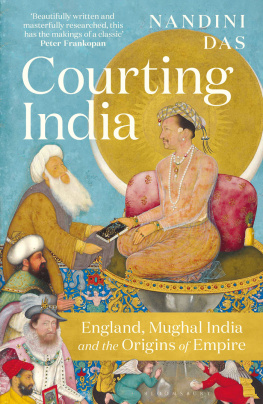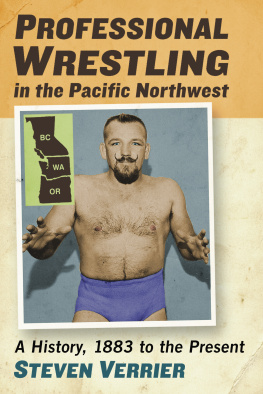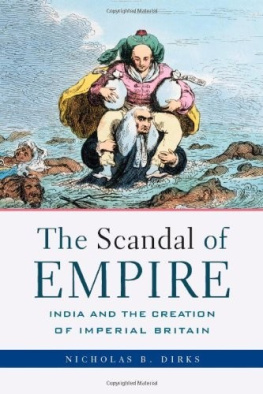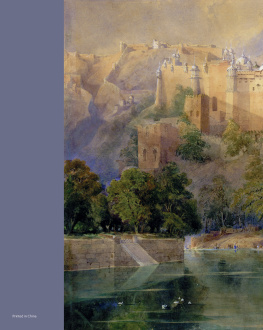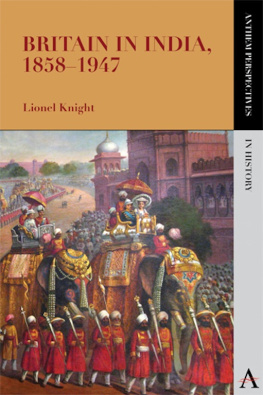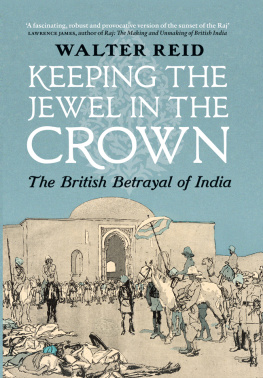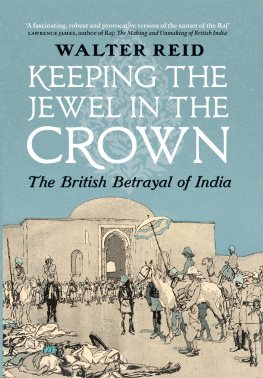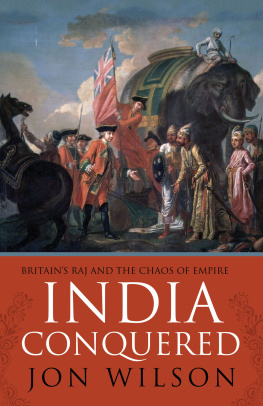ROUTLEDGE LIBRARY EDITIONS: BRITISH IN INDIA
Volume 24
Truth About India
First published in 1932 by George Allen & Unwin Ltd
This edition first published in 2017
by Routledge
2 Park Square, Milton Park, Abingdon, Oxon OX14 4RN
and by Routledge
711 Third Avenue, New York, NY 10017
Routledge is an imprint of the Taylor & Francis Group, an informa business
All rights reserved. No part of this book may be reprinted or reproduced or utilised in any form or by any electronic, mechanical, or other means, now known or hereafter invented, including photocopying and recording, or in any information storage or retrieval system, without permission in writing from the publishers.
Trademark notice: Product or corporate names may be trademarks or registered trademarks, and are used only for identification and explanation without intent to infringe.
British Library Cataloguing in Publication Data
A catalogue record for this book is available from the British Library
ISBN: 978-1-138-22929-7 (Set)
ISBN: 978-1-315-20179-5 (Set) (ebk)
ISBN: 978-0-415-31573-9 (Volume 24) (hbk)
ISBN: 978-1-138-71497-7 (Volume 24) (pbk)
ISBN: 978-1-315-22972-0 (Volume 24) (ebk)
Publishers Note
The publisher has gone to great lengths to ensure the quality of this reprint but points out that some imperfections in the original copies may be apparent.
Disclaimer
The publisher has made every effort to trace copyright holders and would welcome correspondence from those they have been unable to trace.
Truth About India:
Can We Get It?
by
Verrier Elwin
With Seven Appendices
Preface by
Laurence Housman
London
George Allen & Unwin Ltd
Museum Street
FIRST PUBLISHED IN 1932
ALL rights reserved
PRINTED IN GREAT BRITAIN BY
UNWIN BROTHERS LTD., WOKING
Note
T HIS book is based on a draft which Verrier Elwin was asked to prepare. As he has now taken up work for Gonds, an aboriginal people, in a very remote village two days from the railhead, he is at present out of direct touch with the changes in the political situation in India, and so his manuscript has been carefully revised by friends first in Bombay, and then in London.
T HE title which Father Elwin has chosen for this pamphlet Truth About India is a summing-up, for many of Indias well-wishers in this country, of their main difficulty. For if they really knew the truth, to be sure of it, the rest would be easy. Not, indeed, the critical process toward a solution of the present complication of affairs which persistent blindness, blunder, and delay have made doubly complicatedthat is bound to be difficult; but at least they would see for themselves personally what their own position ought to be; they would not then (as so many are still doing) let practical difficulties outweigh moral principles.
Many people in this country are genuinely in doubt about our duty in this matter, because they do not know the truth. The truth may have been told themfragments of it, at any rate; but they do not know it is the truthand how are they to know? Much that is not true is told themperhaps from both sidesby people who believe that what they tell is true, and in support of the untruth quote evidence which seemsand is to themconvincing. And yet what is so honestly told may not be the truth at all; while, on the other hand, what is so honestly doubted may actually be the truth which would decide our doubts if we could wholly believe it.
Where there is so great a conflict of evidencethe genuine, the exaggerated, and the manufactured inextricably mixedthe attitude of mind and temper of those on whose word we are asked to rely becomes enormously important. If, in their tendering of evidence, we detect malice, hatred, bitterness, obstinate refusal to see any good or honesty of purpose on the other side, many will draw back repelled and suspicious; and the truth may be undone and made of no effect by the manner of its presentment. And thatapart from his long experience of Indian life, and his close intimacy with and affection for the Indian peopleis where the value of Father Elwins testimony comes in. He has no hatred in him; he is not bitter; his affection for India, and his firm belief in her right not merely to self-government but to independence, has not made him hostile to those of his own race, or unable to admit that many in high power and authority do honestly believe that Englands hold over India is wholly for Indias benefit. It is not an easy admission to make now that the Ordinances, with their inevitable products of injustice, oppression, concealment, and abuse of power, are in operation against a whole people. But the fact that he is so able to state the case, as he sees it, of the Truth about India, should recommend what he has to say to men of good will more strongly than any words of mine. Like St. Paul in his better moments, he has the spirit with him; and if that spirit could be extended to all the contestants alike, the problem would practically be solvedwould at any rate be in process of solution on lines which would make the Ordinances as utterly foolish and useless in the eyes of all as they are now to so many indefensible and detestable.
LAURENCE HOUSMAN
Contents
BY L AURENCE H OUSMAN
Guide
I was privileged to be present at the arrest of Mahatma Gandhi in the early hours of Monday, January 4, 1932. In the half-hour that he was allowed for his preparations and farewells he wrote (for it was his silence day) a number of messages, among them the following note of friendship to all English people:
M Y DEAR E LWIN ,
I would like you to tell your own countrymen that I love them even as I love my own countrymen. I have never done anything towards them in hatred or malice, and, God willing, I shall never do anything in that manner in future. I am not acting differently towards them from what I have done under similar circumstances towards my kith and kin.
With love,
Yours,
M. K. G ANDHI
I have tried to write this pamphlet in that spirit. It is written in great lovelove for India and love for Britain. It would be hard to say which I love the most. I have had to speak franklysome will say harshlybut such frankness is vital if we are to have understanding, which is the basis of love, between the two great nations which should be friends. I want to make it clear that where I have had to criticize the actions of my fellow-countrymen in India, I have no antagonism towards individuals, but only towards the system. I am happy in counting many officials and police officers among my friends, and I know them to be men of the highest integrity who are doing their duty under conditions of great difficulty. But they are in an impossible position. The system is their enemy as much as Indias. I long to see the day when both my Indian and my English friends will be free from a burden which is harmful to us as well.
VERRIER ELWIN
A SHRAM OF S T . F RANCIS ,
K ARANJIA , D IST . M ANDLA , C.P.
February 17, 1932
Truth About India
Can We Get It?
I
Introductory:
What Britain Believes
T HIS pamphlet is addressed to the many sincere men and women in Great Britain who are genuinely puzzled by the march of events in India. There is a large number of people, by no means diehard in their views, to whom Mahatma Gandhi and the Congress form an enigma. They consider that the Mahatma, for all his spirituality and moral power, is not a practical politician; he played the part of an obstructionist in London by his impossible demands, and on his return to India precipitated a crisis that was certain to bring suffering upon millions. His creed of civil disobedience is in their view full of danger; they think that it cannot be practised on a large scale without certain risk of violence, and that if it became common it would make all constitutional government impossible. Especially, they say, is civil disobedience unjustifiable at the present time, when Britain is eager to give India a large measure of self-government. To them Congress is only one of several political parties; its extremist views they think are not shared by the majority of Indians, who prefer the way of constitutional reform; and it is necessary, they feel, in order to give law-abiding citizens an opportunity to cooperate in the reforms, to create a peaceful atmosphere in the country, if necessary, with a firm hand. Any government, they argue, would do as we have done. So long as we are responsible for the government of India, we must govern.



